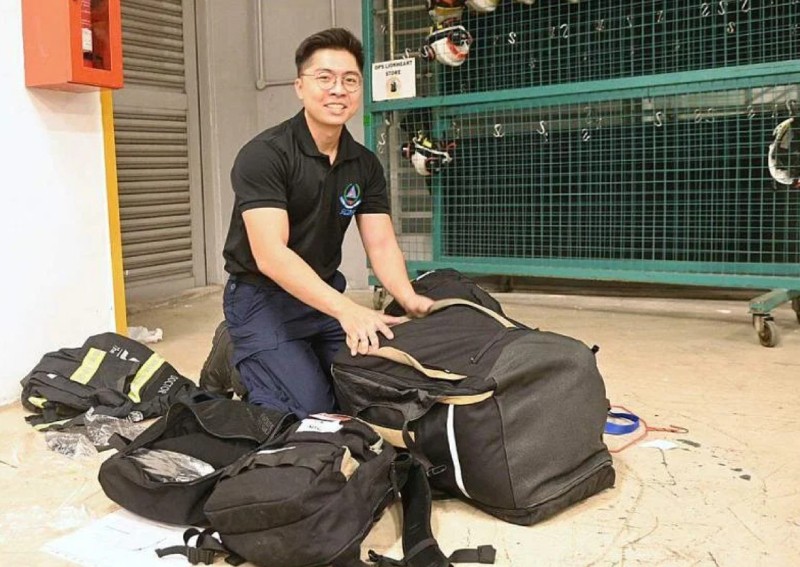NSF medical doctors, paramedics, and search dogs: SCDF's 68-man team to head to Turkey to help with rescue efforts following earthquake


SINGAPORE - When a 27-year-old medical officer with the Singapore Civil Defence Force (SCDF) found out that he would be heading to Turkey in the aftermath of a massive earthquake on Tuesday, he quickly geared up for the task.
Although filled with a sense of nervousness, Captain (Dr) Nicholas Tan Yun Feng, a full-time national serviceman (NSF), also looked forward to the challenge of being one of two doctors among a 68-man contingent from the SCDF who will be part of rescue efforts following the natural disaster that has taken the lives of over 11,000 people so far.
Cpt (Dr) Tan will be part of a second team – comprising 48 members – departing from Singapore by Friday. The team, who will also be taking along four search dogs, will join 20 SCDF officers who left Singapore on Wednesday and have arrived in Adana, Turkey.
The overall Singapore team, led by the commander of SCDF’s 2nd Division, Colonel Chew Keng Tok, includes 37 officers from the Disaster Assistance and Rescue Team. It also includes two operation officers, two NSF medical doctors, four paramedics, four search specialists, 13 support officers, four hazardous material assessment officers and an Asean Emergency Response and Assessment Team officer.
The Operation Lionheart contingent in Turkey will be working closely with the local authorities to conduct search and rescue operations.
Speaking to the media at the SCDF headquarters in Ubi on Wednesday, Cpt (Dr) Tan, who enlisted in July 2022, said that apart from treating casualties, he will be ensuring the welfare of the SCDF contingent in Turkey.
He said: “It is inevitable you feel nervous and anxious because it is a very different scenario from the hospital where I am used to working at... this is like a disaster zone. But the principles of management are still the same, essentially.
“So, even though I am nervous, it is a good test to calm my nerves and see whether I can perform under pressure while maintaining my clinical acumen.”
This is the 20th Operation Lionheart overseas deployment and will be the first time the heavy urban search and rescue team is being deployed in the Europe region – its farthest deployment.
Col Chew, 51, said the SCDF team – who will be deployed to the city of Kahramanmaras – is looking to be in Turkey between 10 and 14 days, subject to the country’s needs.
He said the key starting point for the rescue mission is to be able to locate the survivors, and the search dogs will be involved in the wide-area search.
The rescuers will then use acoustic devices and fibre-optic cameras to look out for signs of life, before employing equipment like saw blades and breakers to get through rubble.
Col Chew highlighted the extremely cold weather and said the team has done a fair amount to prepare for this.
Amid the challenges, he said his team – which has a good mix of seasoned and new people and specialisations – is up to the task.
“This gives me the confidence that we should be able to have quite a successful and smooth operation,” he added.
This article was first published in The Straits Times. Permission required for reproduction.